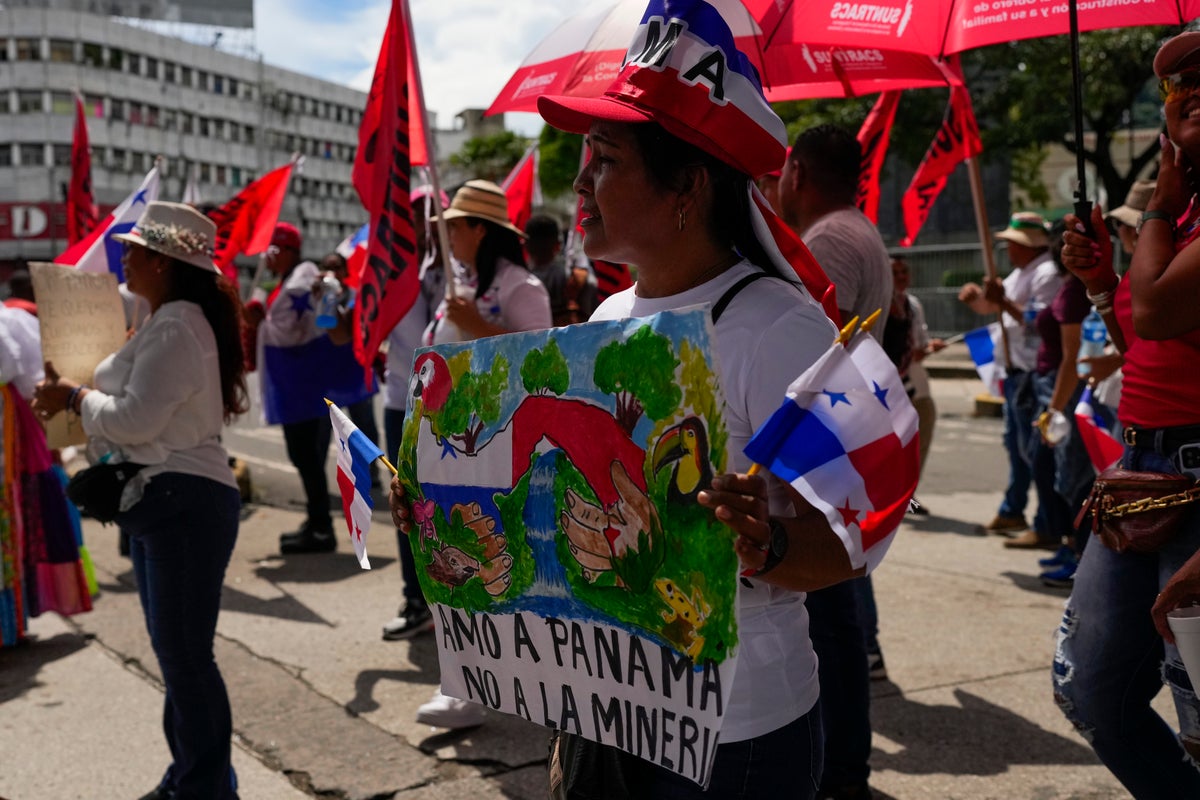
Indigenous anti-mining protesters that have paralyzed Panama's key roadways for weeks said they will temporarily suspend blockades for 12 hours Monday as a show of good faith to citizens affected by the demonstrations.
Demonstrators are demanding the Panamanian government annul a contract allowing the Canadian mining company First Quantum Minerals to continue operating an open-pit copper mine in a richly biodiverse jungle.
Roads will be opened from 6 a.m. to 6 p.m. Monday, at least in northern Panama, to allow people to access fuel and food, after shortages in many regions caused by the blockades, said Juan de Dios Camaño, secretary general of the Association of Chiricano Educators.
“The war isn't the people against the people. The war is against these criminals we have in the government,” he said in a video posted to the group's Instagram account.
He said the protest would resume in full force after the 12-hour suspension.
The protests erupted late last month over the contract allowing the mine to keep operating for the next 20 years, with the possibility of the company extending it for a further 20 years.
Demonstrations gained international attention after authorities confirmed that two demonstrators were killed last week. Local reports and video circulating on social media appear to show a man wielding a pistol attempting to pass through a barricade and protesters lying dead on the ground. Police said they arrested one suspect in the incident, but did not identify him.
While Panama’s government has said the mine is a key source for jobs in the Central American country, Indigenous groups say the mining is a threat to many of the delicate ecosystems they protect.
Such unrest is rare in Panama, but the protests come at a time that environmental protection is gaining increasing importance for many in Latin America, home to some of the most biodiverse ecosystems in the world.
Opposition to big projects is especially intense in rural Indigenous communities, which are often disproportionally affected by climate change and other environmental destruction.
Canadian mining concerns, which by some estimates make up 41% of the large mining companies in Latin America, are often criticized in the region of environmental damage, lack of accountability and other abuses.
But critics of the blockades say they are damaging citizens more than the mining company. One Panamanian business association estimates the road blockages are causing a daily loss of $80 million to local businesses.
Late last week, police announced they planned to break up the road barricades, using force if needed.
“We are going to use the necessary force so that the roads are opened, and the well-being of all citizens is achieved,” Police Commissioner Elmer Caballero said.







